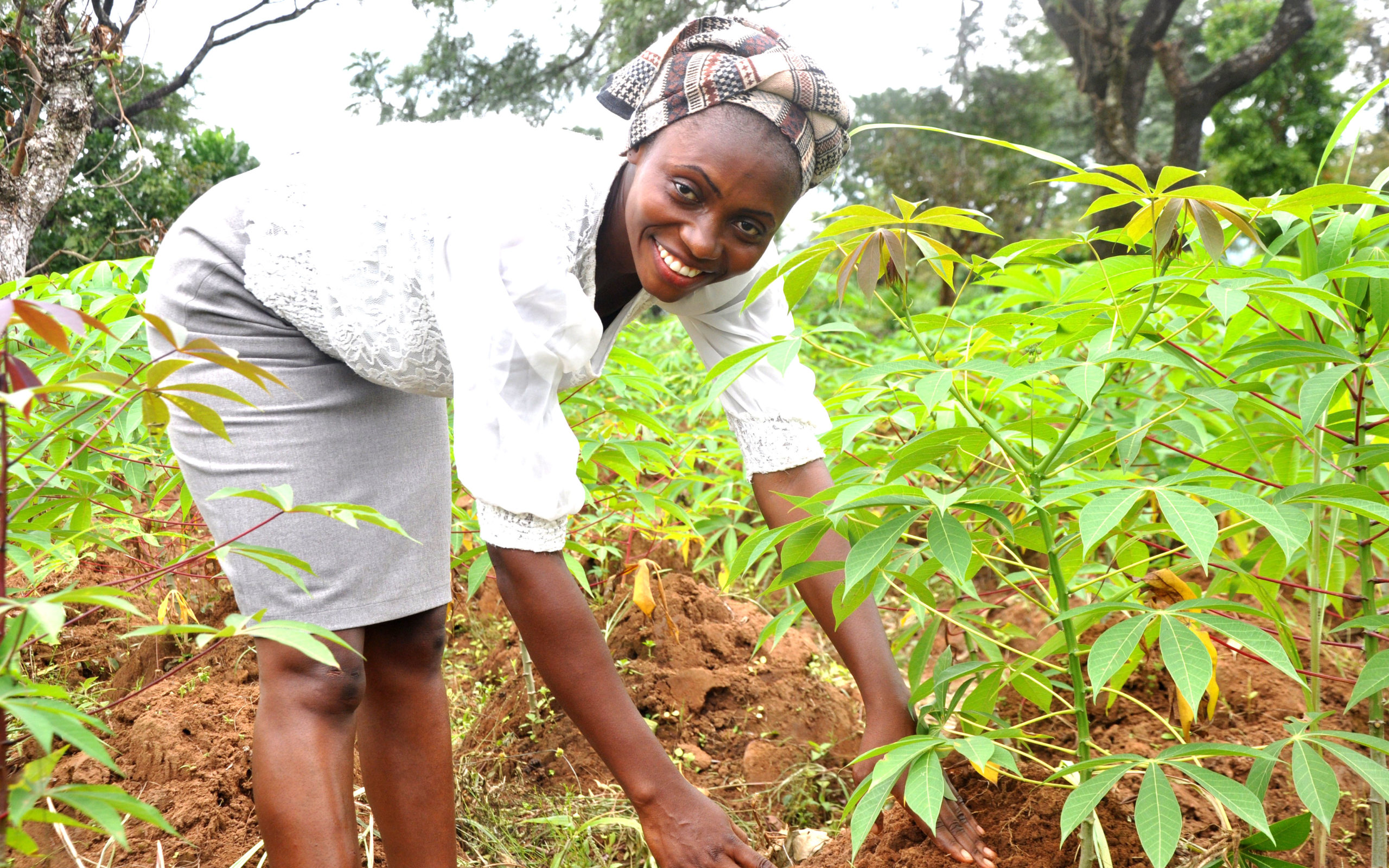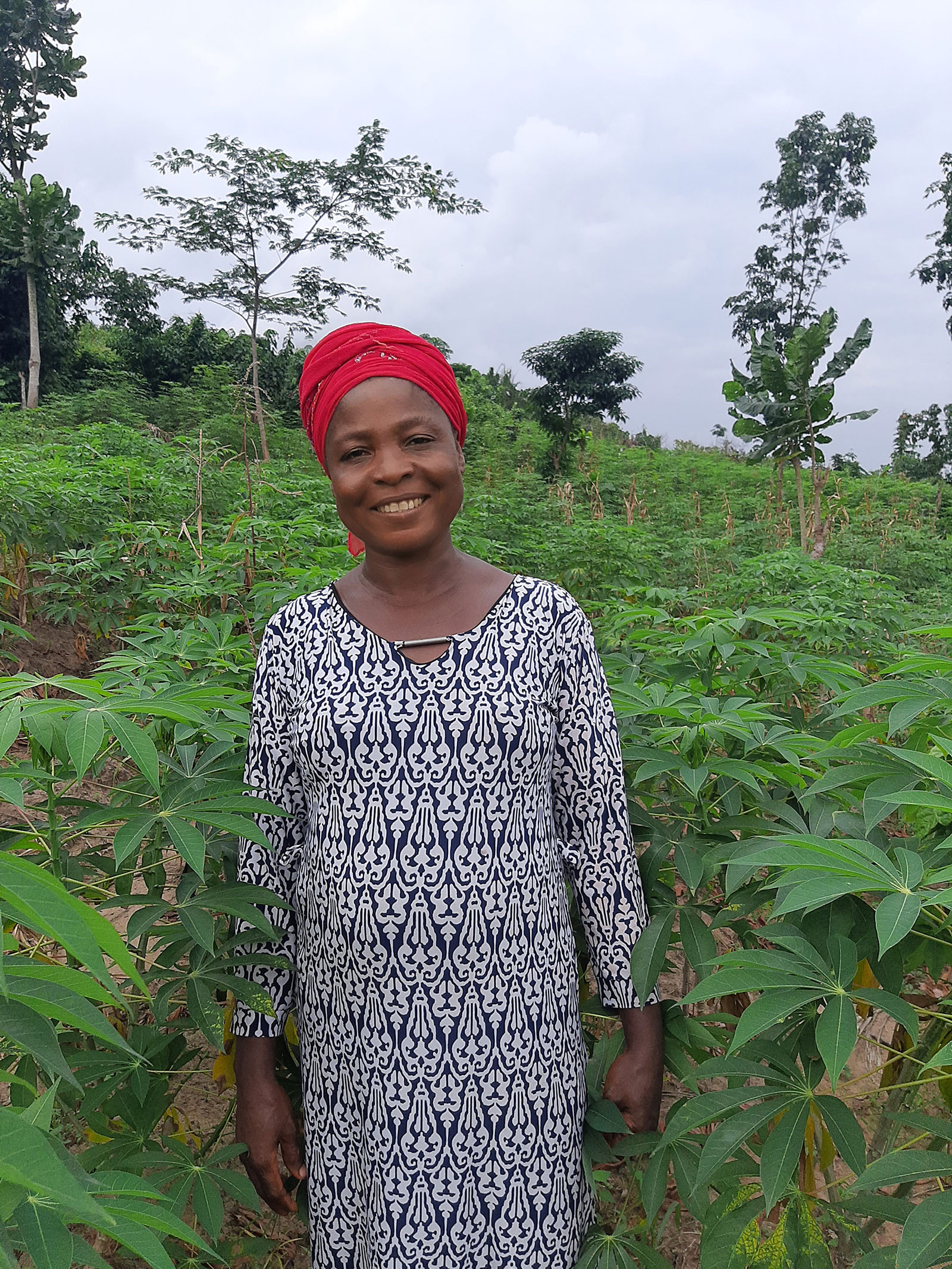Building a new life
Story

Seeking safety, and so much more.
Ayum is a young subsistence farmer who lives off what she can gather. She is among the thousands of Southern Cameroonians who have fled their country since 2017 due to conflict and military force.
Ayum and others like her have sought safety, stability, and a better life in neighboring Nigeria. Although welcoming, the influx of refugees has put pressure on their new communities.
Cuso International, with support from the United Nations High Commission for Refugees (UNHCR), is delivering entrepreneurial and life skills training to refugees and their new communities in Cross River and Benue states.
Ayum joined 950 refugees and community members to learn more about commercial farming through Cuso International’s Farmer Field Schools. Using a participatory learning approach, farmers are empowered and actively involved in crop management decision making, livestock management, and adoption of technology innovation. The schools offer support to underserved groups, particularly women and youth.
“We believe that once we invest in women, they will be able to not only support their families but their host communities as well,” says Jerry Nwigwe, Cuso International Team Lead, Nigeria. “Sixty per cent of our primary participants are women. They account for the majority of participants who are starting the most successful businesses.”
After seeing the opportunities available and gaining new skills from hands-on training, Ayum plans to become a commercial farmer, managing her own plot of land and selling her excess crops.

Patience Nguma at her farm in Calabar, Nigeria
“Providing livelihood skills to refugees, gives them momentum and hope to start a new life outside of their countries of origin. With new skills to sustain their lives, they are able to contribute to the economic development of their host community,” says Jerry. “We have seen excellent strides in our program in just one year.”
More than 700 community members and refugees received training, and an additional 200 people gained access to arable land for cultivation of agriculture, livestock, or fisheries.
Due to the early success of the project, the UNHCR extended Cuso International’s funding, allowing the project to further expand its reach to 3,000 participants in two states across Southeast Nigeria. One of the biggest achievements has been a shift in mindset for participants of the program.
“Despite originally viewing their stay in Nigeria as a temporary transition, Cameroonian refugees are beginning to see it as an opportunity and a home, and they are finding ways they can make a difference themselves,” says Jerry.
Hillary Arong was one of 1,000 people who attended a Cuso International-led program to identify skills and opportunities to help alleviate unemployment and increase the growth of new businesses. Participants were asked to identify business needs in their communities that were missing and which they could provide. Cuso then provided training to sharpen their skills in their areas of interest.
“The future looked bleak, but today, we have hope,” says Hillary. “Our gratitude goes to Cuso International and the UNHCR for the support.”
470
people received life skills training in agriculture, livestock, or fisheries269
people received entrepreneurship, technical skills, and start-up support training208
people have access to arable
land for cultivation of agriculture, livestock, or fisheries30
village savings and loans associations created for community-led development14
Farmer Field schools created to provide hands-on training
Photos:
Hero: Ayum, managing her crop – Farmers Field school, Nigeria